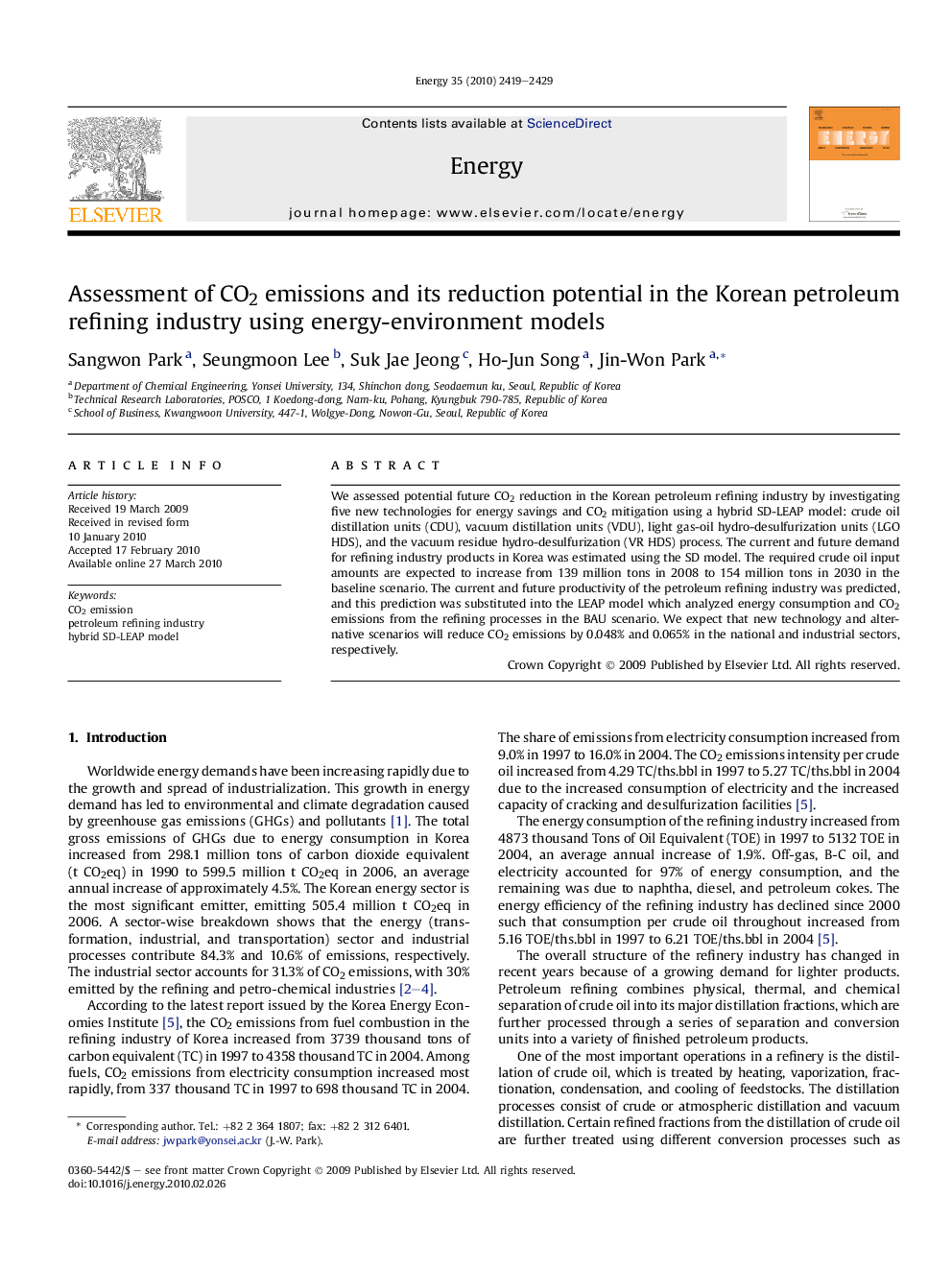| Article ID | Journal | Published Year | Pages | File Type |
|---|---|---|---|---|
| 1735265 | Energy | 2010 | 11 Pages |
We assessed potential future CO2 reduction in the Korean petroleum refining industry by investigating five new technologies for energy savings and CO2 mitigation using a hybrid SD-LEAP model: crude oil distillation units (CDU), vacuum distillation units (VDU), light gas-oil hydro-desulfurization units (LGO HDS), and the vacuum residue hydro-desulfurization (VR HDS) process. The current and future demand for refining industry products in Korea was estimated using the SD model. The required crude oil input amounts are expected to increase from 139 million tons in 2008 to 154 million tons in 2030 in the baseline scenario. The current and future productivity of the petroleum refining industry was predicted, and this prediction was substituted into the LEAP model which analyzed energy consumption and CO2 emissions from the refining processes in the BAU scenario. We expect that new technology and alternative scenarios will reduce CO2 emissions by 0.048% and 0.065% in the national and industrial sectors, respectively.
